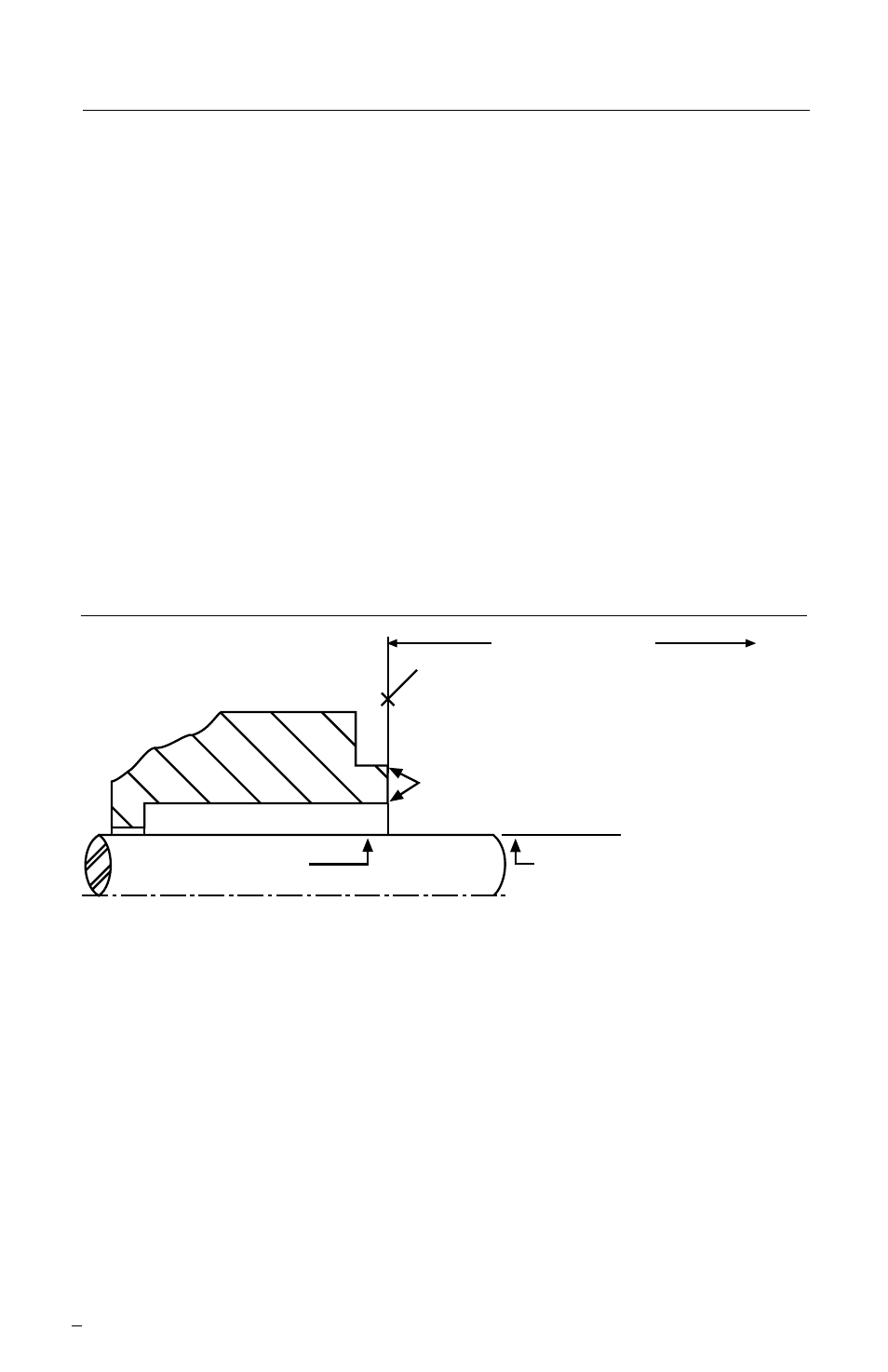1 equipment check, Seal chamber requirements – Flowserve Durametallic Double CRO User Manual
Page 2

1 Equipment Check
2
Seal Chamber Requirements
Figure 1
1.5 Check assembly drawing included with the Double CRO seal for
specific seal design, materials of construction, dimensions, and
piping connections.
1.6 Check shaft or sleeve OD, box depth, box bore, and distance
to the first obstruction to ensure that they are dimensionally the
same as shown on the seal assembly drawing.
1.1 Follow plant safety regulations:
• lock out motor and valves.
• wear designated personal safety equipment.
• relieve any pressure in system.
• consult plant MSDS files for hazardous material regulations.
1.2 Adjust the bearings, coupling, and impeller so that the shaft is
in its operating axial position. Disassemble equipment to allow
access to seal installation area.
1.3 Remove all burrs and sharp edges from the shaft, sleeve, seal
housing bore and face, keyways, and any other feature that may
contact sealing gaskets. Replace worn components. Clean all
piping plans.
1.4 Check requirements for shaft, sleeve, and seal housing.
See Figure 1.
To first obstruction
Face of seal housing to be square to the
axis of the shaft to within 0.0005 mm/mm
(0.0005 inch/inch) of seal chamber bore TIR
and have a 1.6
μ
m (63
μ
inch) R finish or better
a
Gland pilot can be at either of these
register locations, concentric to within
0.125 mm (0.005 inch) of shaft or
sleeve OD TIR
Seal housing bore to have 3.2 μm
(125 μinch) R finish or better
Sleeve or shaft finish to be
0.8 μm (32 μinch) R or better
a
a
• Bearings must be in good condition
• Maximum lateral or axial movement of shaft (end play) = 0.25 mm (0.010 inch) TIR
• Maximum shaft runout at face of seal housing = 0.05 mm (0.002 inch) TIR
• Maximum dynamic shaft deflection at seal housing = 0.05 mm (0.002 inch) TIR
Shaft or sleeve OD
+0.000 mm (+0.000 inch)
-0.050 mm (-0.002 inch)
+0.000 mm (+0.000 inch) API 610/682
-0.025 mm (-0.001 inch) DIN/ISO
ANSI
The images of parts shown in these instructions may differ visually from the actual
parts due to manufacturing processes that do not affect the part function or quality.
